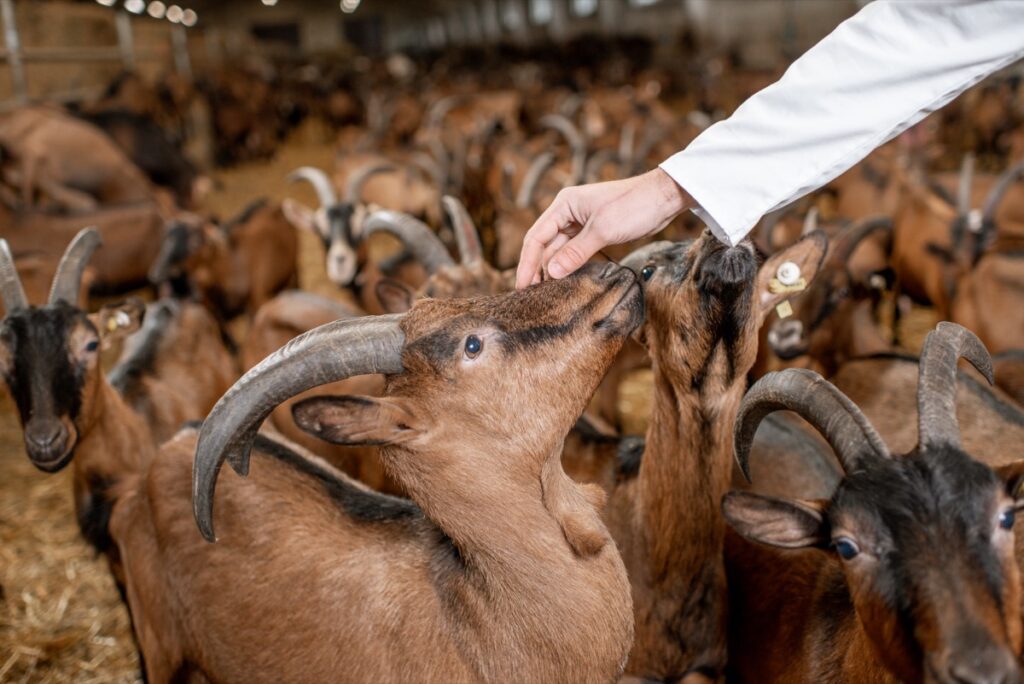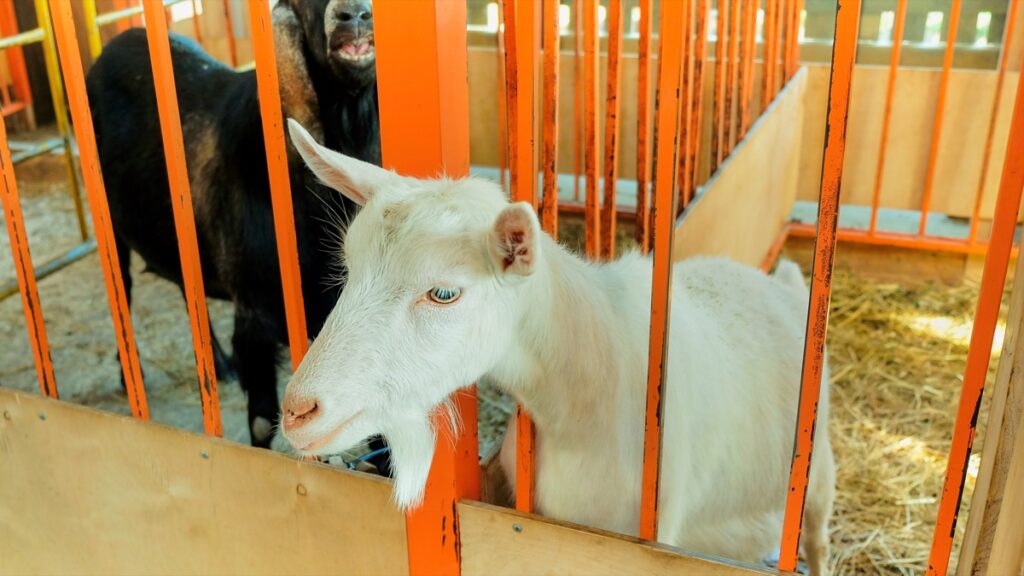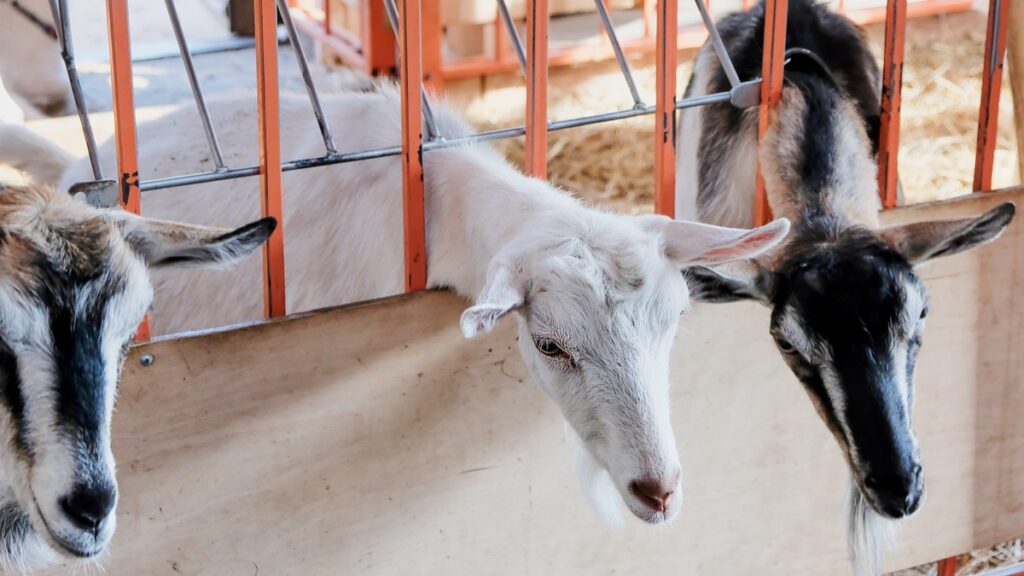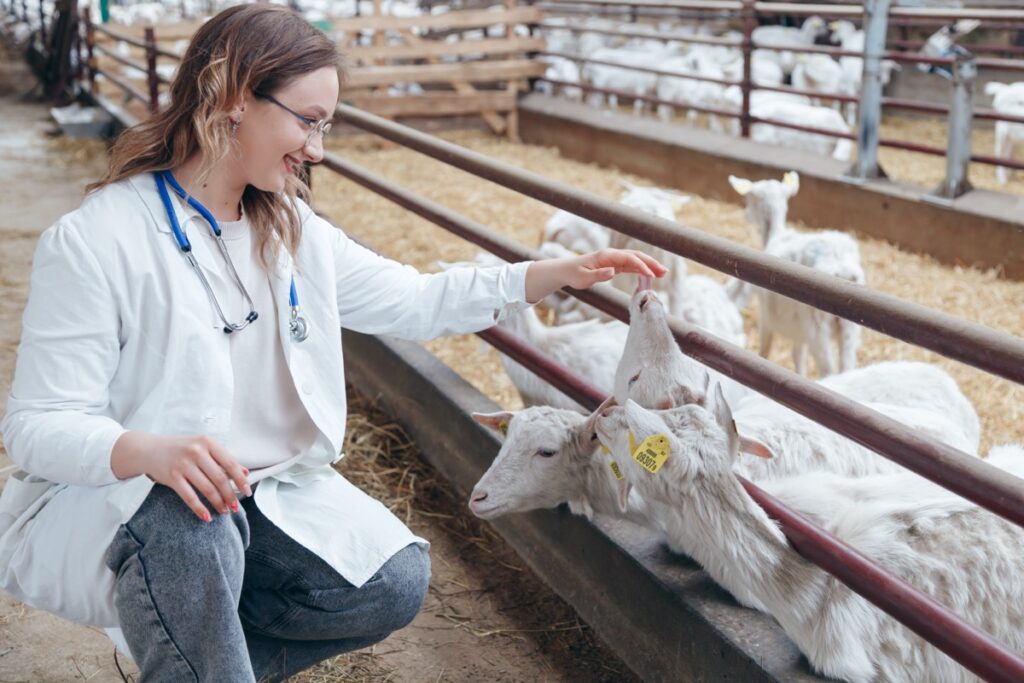CDT, short for Clostridium perfringens type C + D and tetanus, is a vaccine that protects against serious diseases in sheep and goats. This vaccination plays a vital role in safeguarding the health of these animals by preventing clostridium perfringens type C and D, commonly known as overeating disease, as well as clostridium tetani or tetanus.

For anyone raising goats, the CDT vaccine should be essential to their herd management strategy. The vaccine contains weakened or dead forms of the bacteria, allowing their bodies to recognize and develop immunity against them. Adhering to proper timing and frequency when administering the CDT vaccine is important to ensure maximum effectiveness and protection for your goats’ well-being.
Why Is CDT Vaccine Important for Goats: Benefits and Role
The Importance of CDT Vaccination in Goat Health Management
It plays an important role in maintaining their overall goat health. Clostridium perfringens type C and D, also known as overeating disease, can cause severe gastrointestinal issues in goats. This can lead to diarrhea and even death if left untreated. The CDT vaccine provides essential protection against these harmful bacteria. The immune system of goats relies on the effectiveness of vaccines like CDT to ward off potential threats.
Investing in regular vaccinations such as the CDT vaccine keeps your goats healthy and contributes to their overall productivity. It is essential not to underestimate the role of vaccination in preventing these deadly diseases among your goat herd. By implementing a proper vaccination schedule with the CDT vaccine, you safeguard their health and ensure optimal productivity within your herd.
Exploring the Benefits of the CDT Vaccine for Goats
Ensuring the health and well-being of your goats should be a top priority for any responsible goat owner. One crucial aspect of goat health management is the administration of the CDT vaccine. The CDT vaccine plays a vital role in preventing outbreaks within your herd. Furthermore, regular vaccination of goats with the CDT vaccine helps to boost immune systems.
In case you missed it: Vaccination Schedule for Goats: A Comprehensive Guide for Beginners

This empowers their bodies to fight off potential infections caused by these dangerous bacteria. In addition to protecting against overeating disease, the CDT vaccine also safeguards goats from tetanus. By administering regular doses of the CDT vaccine to your herd, you are taking proactive steps toward ensuring their overall health and well-being. The immune response triggered by this vaccination helps build antibodies within their systems to fight off potential infections.
What Does the CDT Vaccine Protect Goats Against?
The CDT vaccine is crucial in protecting goats against deadly diseases. One of these diseases is Clostridium perfringens type C and D, commonly known as overeating disease. This bacteria can cause severe digestive issues in goats, leading to bloating, diarrhea, and even death. Another dangerous pathogen the CDT vaccine protects against is Clostridium tetani, which causes tetanus.
Tetanus affects the nervous system and can cause muscle stiffness, difficulty swallowing, and even respiratory failure. By vaccinating goats with the CDT vaccine, goat owners effectively safeguard their animals from these bacterial infections. The vaccine stimulates the goat’s immune system to produce antibodies that recognize these harmful pathogens.
How Does the CDT Vaccine Work in Goats’ Immune System?
The CDT vaccine plays a crucial role in boosting the immune system of goats, providing them with vital protection against deadly diseases. Once these antibodies are produced, they circulate throughout the goat’s bloodstream, constantly on alert for invading pathogens. These antibodies quickly recognize and bind to the harmful bacteria or toxins involved if an infection occurs.
Additionally, vaccination triggers an immune response in goats’ bodies, allowing their immune systems to develop memory cells. In this way, the CDT vaccine provides long-term protection for goats by priming their immune systems to mount a swift defense against future infections. It acts as an essential tool in maintaining overall herd health and productivity. Consulting with your veterinarian about proper timing and frequency is key.
The Role of CDT Vaccination in Preventing Deadly Diseases in Goats
CDT vaccination plays a crucial role in safeguarding the health and well-being of goats. Immunizing them against deadly diseases significantly reduces the risk of morbidity and mortality within goat herds. By administering the CDT vaccine according to proper guidelines, goat owners can provide their animals robust immunity against these life-threatening diseases.
In case you missed it: How to Prepare Yourself for Goat Kidding Season

In addition to protecting goats from specific pathogens responsible for these diseases, CDT vaccination helps boost overall immune function in individuals. This enhanced immune response aids in combating other infectious agents encountered by goats throughout their lives.
When and How Often Should Goats Receive the CDT Vaccine?
The CDT vaccine should be administered to goats early, typically around 8 to 12 weeks old. After the initial vaccination, goats should receive booster shots every year. This helps maintain their immunity levels and protects them against these dangerous diseases. It’s important not to skip or delay vaccinations, which can leave goats vulnerable to infections. Additionally, if you introduce new goats into your herd, vaccinate them before mixing them with your existing herd members.
Common Misconceptions about the CDT Vaccine for Goats
One misconception is that only goats in certain regions or environments need the CDT vaccine. However, this vaccine is important for all goats, regardless of location. Diseases like Clostridium perfringens type C and D (overeating disease) and tetanus can occur anywhere, so it’s crucial to vaccinate your goats.
Another misconception is that natural remedies or herbal supplements can replace the need for vaccines. Vaccines stimulate an immune response specific to targeted diseases, offering reliable prevention against potentially deadly illnesses. Additionally, there is a belief among some goat owners that vaccinating too frequently can overload a goat’s immune system.
The Impact of CDT Vaccination on Goat Herd Health and Productivity
By vaccinating your goats with CDT, you are taking a proactive step towards safeguarding their well-being. These diseases can cause severe illness, leading to loss of appetite, diarrhea, abdominal pain, and even death if left untreated. CDT vaccination protects individual goats and significantly impacts the overall health and productivity of your entire herd.
By preventing these diseases from spreading within the population, you reduce the risk of costly outbreaks that could result in high mortality rates. Furthermore, healthy goats are more likely to reach their full potential in milk production or growth for meat purposes. Regularly administering the CDT vaccine according to recommended guidelines helps ensure your goat herd remains protected year after year. \
Frequently Asked Questions on CDT Vaccine for Goats
Is CDT Necessary for Goats?
All goats should be vaccinated for tetanus and Clostridium C & D (enterotoxemia). These diseases pose a threat to the goat’s health.
How Does the CDT Vaccine Work?
The CDT vaccine stimulates an immune response in goats by introducing small amounts of inactivated or modified toxins into their bodies. This exposure helps build immunity so that if the goat encounters the actual bacteria later on, its immune system will be better equipped to fight off the infection.
In case you missed it: 10 Common Mistakes to Avoid in Goat Farming: A Guide for First-Time Goat Farmers

Are There Any Side Effects?
In some cases, mild reactions such as swelling at the injection place may occur after vaccination but typically subside within a day or two without intervention.
Does Vaccination Eliminate All Risks Associated with These Diseases?
While no vaccination provides absolute protection against all strains of pathogens involved in these diseases, it significantly reduces morbidity and mortality rates among vaccinated animals.
Is it Necessary To Isolate New Goats Before Vaccinating Them With CDT?
Yes! New arrivals should be isolated for at least two weeks before being introduced into your herd and vaccinated with CDT to prevent potential disease transmission.
Conclusion
The CDT vaccine protects clostridium perfringens type C and Dasx, commonly known as overeating disease. Vaccinating your goats with CDT reduces their risk of falling victim to this deadly condition. By including regular vaccinations with the CDT protocol in your goat management plan, you establish a robust shield around them against life-threatening illnesses like overeating disease and tetanus. Ensuring timely doses boosts their immunity effectively, providing long-lasting protection throughout their lives.
- Types of Grass Growing for Goat Farm
- How to Train Goats for Milking: A Beginners Guide
- Goat Milking Practices and Equipment: A Beginner’s Guide
- Goat Farming for Fiber: Producing Mohair and Cashmere
- Maximizing Goat Milk Production: Tips for Dairy Goat Farmers
- Goat Farming as a Family Business: Strategies for Success
- Profitable Kenya Goat Breeds for Commercial Dairy and Meat Business
- Unlock the Secrets of Oberhasli Goat: Discover Raising and Management Practices
- Ultimate Guide to Myotonic Goats: Explore Profile to Raising